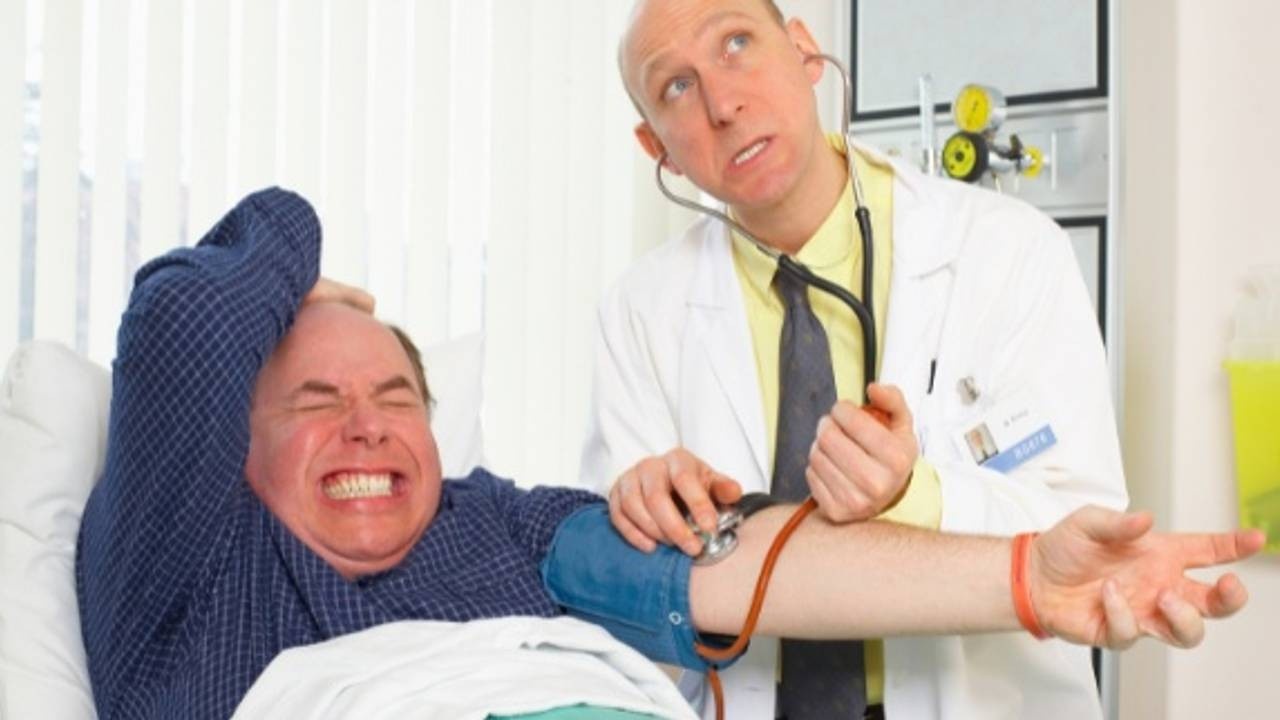
Whitecoat syndrome' fact or fiction?
When you think of high blood pressure, do you think of inactivity, eating unhealthily, drinking or smoking too much, or having some underlying health condition? Or maybe you think it's a disease we get in our senior years? For most of us, I expect we don't even think about it at all since we have no signs or symptoms to suggest we should, right?
Some people only get high blood pressure when they go to see their doctor or health professional and this is a psychological phenomenon known as 'Whitecoat syndrome' where our nervousness or anxiety surrounding the doctor's surgery or hospital gets the better of us and our blood pressure increases quite suddenly and out of the ordinary.
A recent study posted to the journal Hypertension noted that somewhere between 15 and 30 percent of people with high blood pressure at the doctor’s surgery might be affected by white coat syndrome. However, this theory needs to be checked out more thoroughly to make sure we don't have an underlying health problem that lies undetected until we see a health professional so we associate the high blood pressure to seeing the doctor when it happens other times but we're just not aware of it.
I've never had to think about my blood pressure until this last year. I do all the things expected of someone who should have normal blood pressure i.e., I eat a healthy, low-fat, low-salt plant-based diet, I exercise every day, I eat healthily, I'm not overweight, I don't smoke, and drink alcohol in very small amounts, and I don't have any other comorbid health conditions such as diabetes. I also relax easily and use self-hypnosis regularly. The epitome of health some would say.
However, in September 2020 after being referred to see an immunologist by my eye surgeon, I had a routine blood pressure check before my appointment. The nurse was surprised and took it again. The same. I was asked to wait outside in the waiting room for 15 minutes before checking in again since she said it could be due to the rush in getting there. It was slightly lower but still concerningly high. "How long have you had high blood pressure?" she said. "I didn't know I had" I replied. "Perhaps you should see your doctor" she stated.
That was the first I knew that I had a problem. I did go to see my GP and she took it and was worried she got the same after 3 attempts. I was thinking along the lines of White coast syndrome here given I only have it when I see medical professionals, however as she so rightly pointed out, how do you know given you've only had it taken when you see medical professionals?!
She requested I get a blood pressure machine to check out my theory and keep a check on it at home when I'm not likely to be anxious or stressed. I bought one and she was correct; my blood pressure was indeed fluctuating at other times without me being aware of it. It's the best gadget I have ever invested in. It gives me instant feedback that I need to act or not depending on the reading. So if it's high I will take a hot bath, do some exercise, spend time on self-hypnosis or make sure I don't eat any processed foods or salt in my diet and instead increase my potassium and magnesium intake. I'll also avoid anything stressful. It empowers me to be preventative in my self-care without the need for medical intervention e.g., taking drugs and making regular visits to the GP.
If our blood pressure is high for any length of time and we're unable to control it using self-care, it's time to get more checks. Hypertension is a serious medical condition and an early sign that something more serious could be going on. It significantly increases our risks of heart, brain, kidney, and other diseases and is a major cause of premature deaths globally (WHO).






